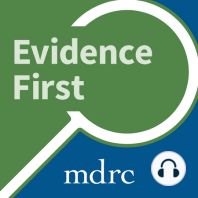15 min listen

How Can Behavioral Science Help Programs Better Serve Clients During the Pandemic?
FromEvidence First
How Can Behavioral Science Help Programs Better Serve Clients During the Pandemic?
FromEvidence First
ratings:
Length:
15 minutes
Released:
Dec 2, 2020
Format:
Podcast episode
Description
Why don't government social services programs better serve families struggling through crises like the COVID-19 pandemic? One reason is that these systems are designed for compliance over access. Many of those who are in need and qualify for benefits are deterred by administrative burdens, including excessive steps and paperwork. Insights from behavioral science can help agencies and nonprofits find ways to streamline their processes and simplify their communications with clients. In this episode of Evidence First, Leigh Parise interviews Rebecca Schwartz, a research analyst in MDRC’s Center for Applied Behavioral Science (CABS). Rebecca describes real-world examples of how CABS has worked with agencies to improve their service delivery to families. She also highlights how the federal government adopted an important behavioral technique — prospective eligibility — in the recent distribution of the CARES Act stimulus checks.
Released:
Dec 2, 2020
Format:
Podcast episode
Titles in the series (57)
Transitioning to Adulthood: Supporting the Transition to Adulthood by Evidence First